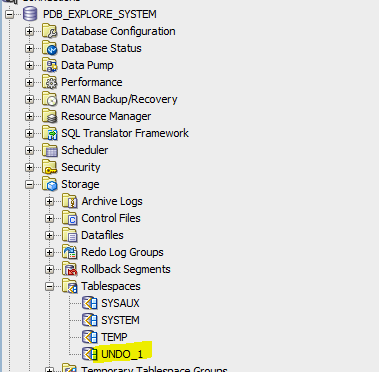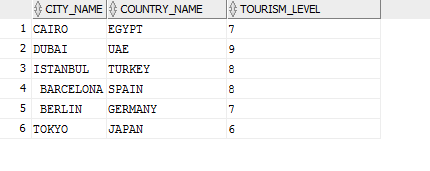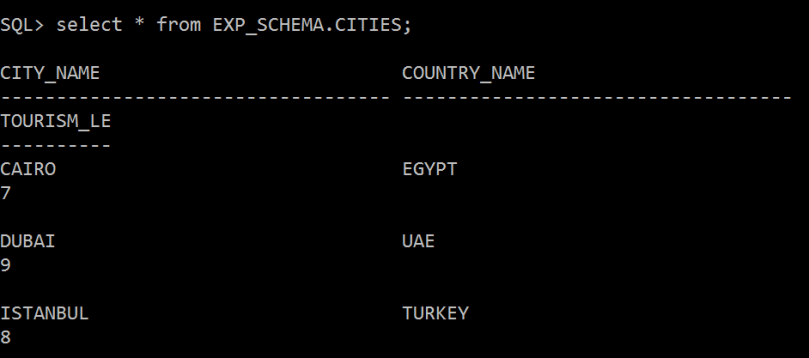My Blog was featured in it:

First, the case of UNDO tablespace:
In Oracle 12cR1 the undo tablespace was common and shared between all container databases, so features like flashback was only feasible on the container-level.
In 12cR2 this is changed as you create a local undo tablespace.
By executing the following query:
SQL> SELECT con_id, tablespace_name
FROM cdb_tablespaces
WHERE tablespace_name LIKE ‘UNDO%’
ORDER BY con_id;
Only the root container has UNDO tablespace

An existing pluggable database with no local undo tablespace

To enable Local Undo Tablespace:
Access the database as sysdba to the root container CBD$ROOT
SQL>shutdown immediate;
SQL> startup upgrade;
SQL> alter database local undo on;
SQL> shutdown immediate;
SQL>startup;
To check that its successful, execute the following query:
SQL>set pages 1000
SQL>set lines 300
SQL> SELECT property_name, property_value
FROM database_properties
WHERE property_name = ‘LOCAL_UNDO_ENABLED’;


To Enable Flash Back:
Configure flash recovery area:
SQL> alter system set db_recovery_file_dest = ‘C:\app\emodb\oradata\oraclehero\fast_recover_area\’ scope=both;
SQL> archive log list;

SQL> alter system set db_flashback_retention_target = 2880 scope = both;
**retention specified will be for 2 days 2880 minutes
Second, Enable flashback from CDB$root level:
SQL> alter database flashback on;
If you try to enable flashback from pluggable database level you will receive the following error:
SQL> alter session set container=PDB_EXPLORE;
SQL> alter database flashback on;
alter database flashback on
*
ERROR at line 1:
ORA-03001: unimplemented feature
Important remark: it’s important to enable force logging on the pluggable database level:
SQL> select pdb_name, force_logging, force_nologging from cdb_pdbs where pdb_name=’PDB_EXPLORE’;

To enable it:
SQL> alter session set container=PDB_EXPLORE;
SQL> alter pluggable database pdb_explore enable force logging;

Also, check that tablespaces are configured for flash back for pluggable database PDB_EXPLORE:
select name,flashback_on from v$tablespace;

Now to explore recover we can do it from different perspectives:
SQL> Select dbms_flashback.get_system_change_number from dual;
GET_SYSTEM_CHANGE_NUMBER
————————
13524572
SQL> select to_char (sysdate, ‘mm-dd-yyyy hh24: mi: ss’) cdate from dual;
CDATE
———————
05-12-2017 12: 53: 35
SQL> create restore point test_flash guarantee flashback database;
Now to explore it, current Table called CITIES has the current data:

*** insert new records in the table:
INSERT INTO “EXP_SCHEMA”.”CITIES” (CITY_NAME, COUNTRY_NAME, TOURISM_LEVEL) VALUES (‘ BARCELONA’, ‘SPAIN’, ‘8’);
INSERT INTO “EXP_SCHEMA”.”CITIES” (CITY_NAME, COUNTRY_NAME, TOURISM_LEVEL) VALUES (‘ BERLIN’, ‘GERMANY’, ‘7’);
INSERT INTO “EXP_SCHEMA”.”CITIES” (CITY_NAME, COUNTRY_NAME, TOURISM_LEVEL) VALUES (‘TOKYO’, ‘JAPAN’, ‘6’);
Commit;


SQL> alter pluggable database pdb_explore close;
SQL> flashback pluggable database PDB_EXPLORE to restore point test_flash;
SQL> alter pluggable database pdb_explore open resetlogs;
Now check the table data again , its back as it was !!!
